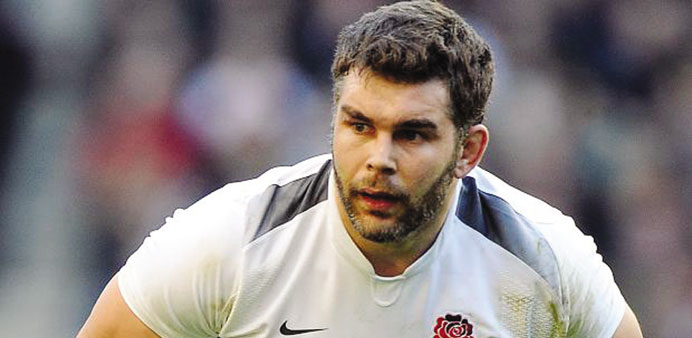Reuters/London
The return of Nick Easter to the England fold has added extra resonance to talk of “Marseille 2007” as the Rugby World Cup hosts look for inspiration ahead of Saturday’s do or die clash with Australia.
Easter, now 37, played number eight in that memorable game and could feature on Saturday after being fast-tracked into the squad to replace the injured Billy Vunipola.
The seasoned campaigner wasted little time in reminding his team mates of what happened eight years ago and how a victory over Australia can change everything for a side that is now battling to avoid an ignominious pool-stage exit after losing to Wales last week.
“There are similarities. Our mind-set against Australia in Marseille was to go out and attack them,” Easter said after his call-up this week. “There can be no backward step this weekend either. There just can’t afford to be.”
England entered that year’s tournament as defending champions but limped past the United States and were humiliated 36-0 by South Africa before scraping into the quarter-finals on the back of less than impressive victories over Samoa and Tonga.
In a familiar-sounding backdrop, coach Brian Ashton was vilified for his tactics and selection, not least for playing a recent rugby league convert at centre—Andy Farrell, now the England backs coach.
TRANSFORMED
Australia had cruised into the last eight and went into the game as strong favourites, but within minutes of the kickoff it became apparent that something had happened to England.
The Reuters report of the time described them as “transformed from Parisian poodles trampled underfoot by South Africa into snarling Marseille mongrels”, and it was the Wallabies on the receiving end.
“What surprised us was the physicality of the encounter,” said Australia’s Adam Ashley-Cooper, another survivor of the game who could play at Twickenham on Saturday. “They were on the front foot in terms of the physical battle.”
They certainly were, smashing into the breakdown and counter-rucking with a ferocity previously unseen in the tournament.
Mighty lock Simon Shaw, captain Phil Vickery and flanker Lewis Moody were relentlessly aggressive, and when Easter tired, England unleashed a fired-up Lawrence Dallaglio. “We were like rabid dogs hunting the ball,” said Easter. “After the South Africa game we had rediscovered our mojo. We felt (that) if we could intimidate them we would have a chance, and it worked.”
Despite the aggression, Australia reached halftime 10-6 ahead thanks to a Lote Tuqiri try. But England’s pack, led by an inspired Andrew Sheridan, eventually ground their rivals into the dust at the set-piece. They were particularly dominant in the scrum, where Australia were shoved backwards and penalised, allowing Jonny Wilkinson’s boot to edge England 12-10 ahead.
COLLECTIVE EFFORT
Sheridan, who now lives in southern France, has never accepted the individual glory showered on him after that demolition job.
“It’s a collective thing and it worked as well as in any game I can remember,” he told The Sunday Times. “Some of the crucial scrums in important areas of the pitch went especially well, which put even more pressure on them.”
It was pressure the Australians could not handle, though their typically tenacious attitude and some rare wayward kicking by Wilkinson kept the scores close despite the almost one-way traffic in the second half.
Stirling Mortlock even had the chance to put Australia ahead three minutes from time but sent a long-range penalty wide.
The Wallabies were later criticised for attempting the shot at goal instead of going for a lineout in the corner—something England’s current captain Chris Robshaw might allow himself a wry smile about the next time he is pressed on the dying minutes of last week’s Twickenham defeat against Wales.
In the context of all that had gone before, England scrumhalf Andy Gomarsall described his side’s famous victory as “unreal”.
Asked how they had achieved it, he said: “Sheer grit and bloody-mindedness.”
A few hours later France—surprise losers in their opening game against Argentina—produced their own Lazarus moment by knocking out tournament favourites New Zealand.
England went on to beat France in their Paris semi-final before losing again to South Africa in the final.

Nick Easter
